Planar Carbon Lattices
RTG-2861-PCL
Our Doctoral Researchers
Paul-Alexander Laval-Schmidt, TUD
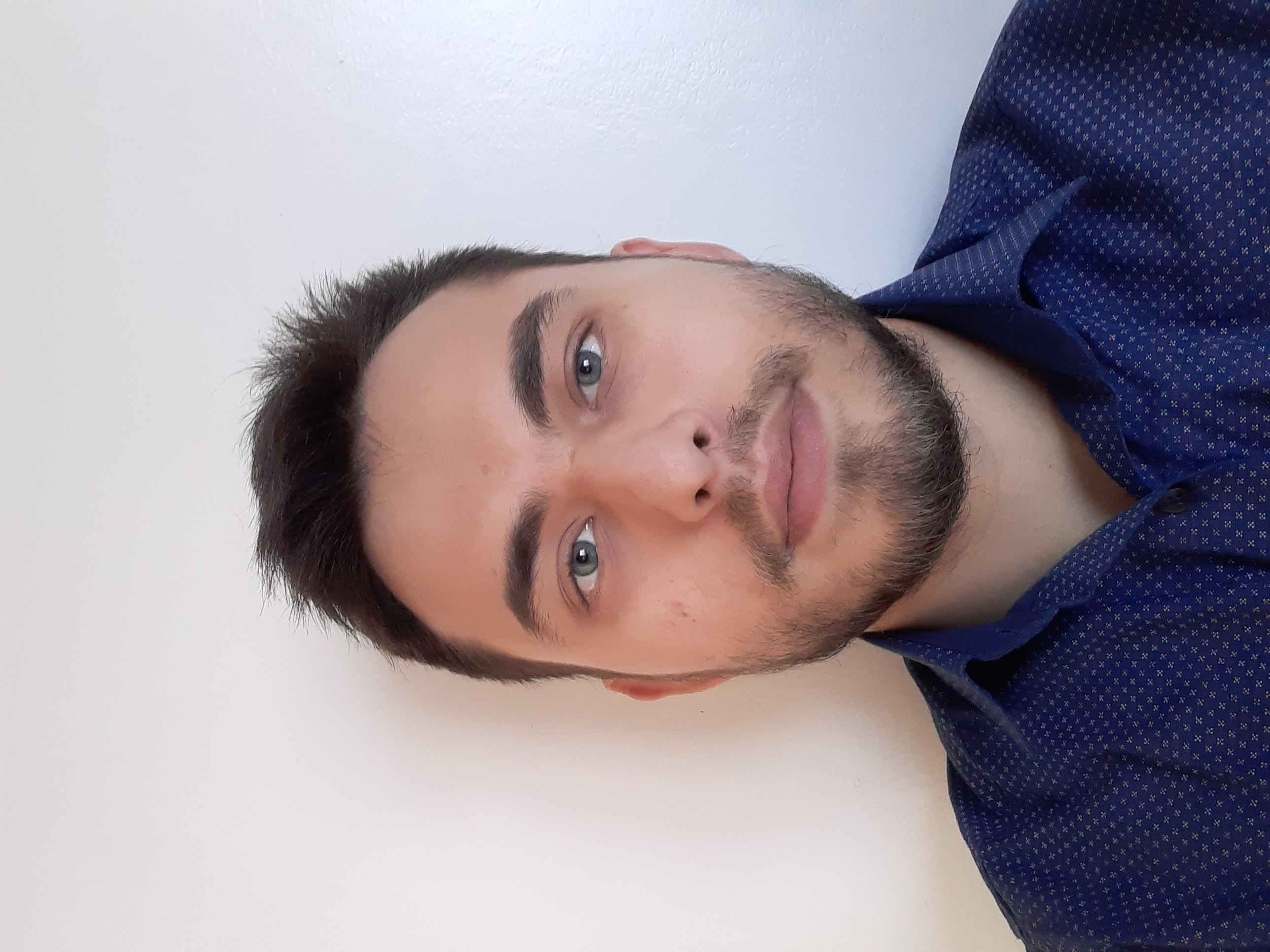
Project RTG2861-A2
Boris Stefanov Borisov is pursuing his PhD study under the guidance of Prof. Xinliang Feng (TUD) and Prof. Janina Maultzsch (FAU). His main objectives are the bottom-up synthesis of graphene nanoribbons with new topology both in solution and on-surface, and the exploration of their properties. To achieve his goal, he combines different synthetic techniques for precision synthesis of the target objects.
Boris received his BSc (2020) in the field of Chemistry with Organic chemistry as a specialization from Sofia University "St. Kliment Ohridski", Bulgaria. He graduated as a MSc in Medicinal Chemistry from the same university in 2022.
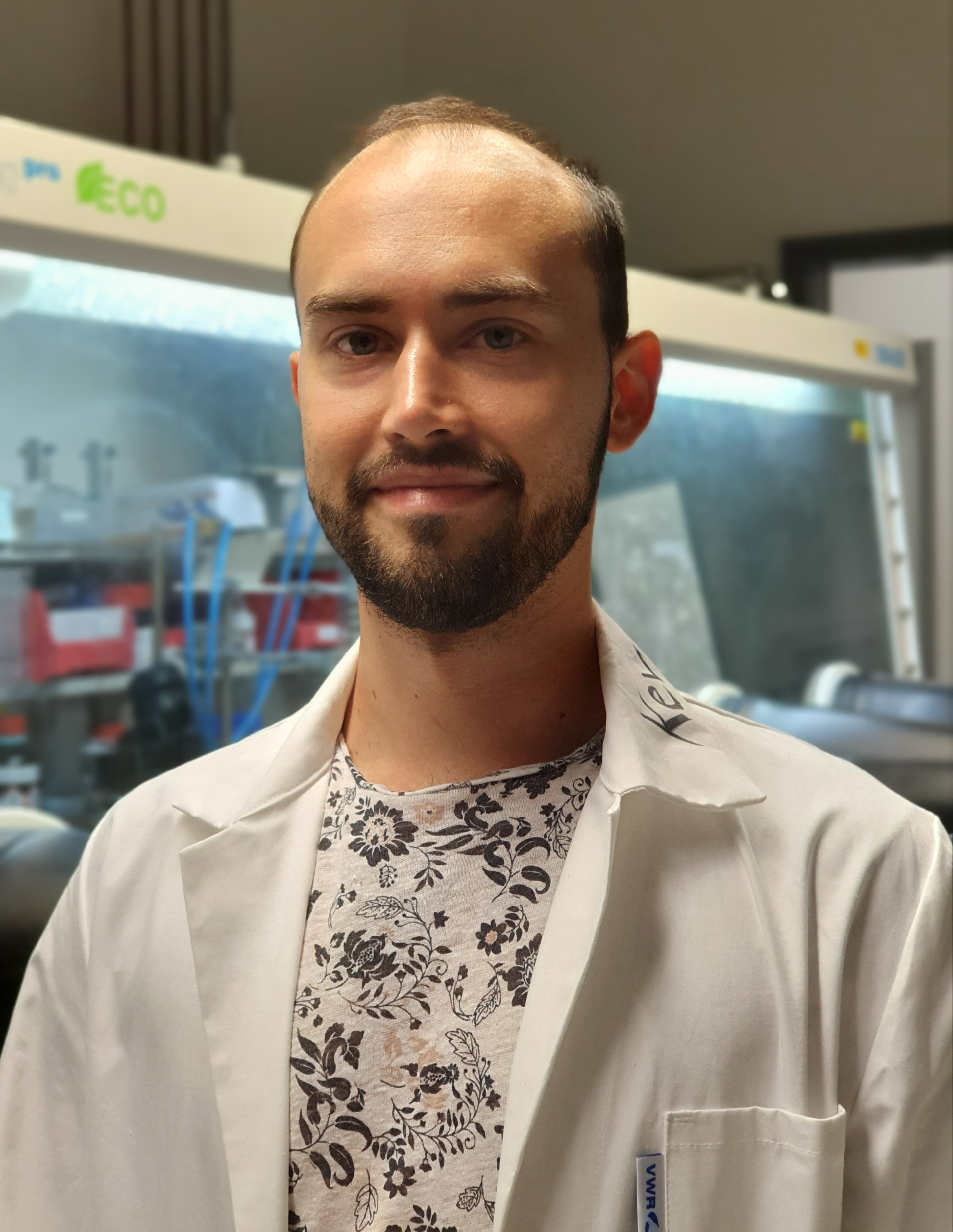
Project RTG2861-A3
Kevin Gerein is pursuing his PhD studies under the supervision of Prof. Dr. Andreas Hirsch at the Chair of Organic Chemistry II and Center of Advanced Materials and Processes (ZMP) at FAU. He explores the spatially resolved chemical functionalization of graphene and investigates the resulting 2D-engineered PCL using Raman spectroscopy and scanning probe microscopy techniques.
As student researcher, Kevin worked on different 1- and 2-dimensional materials such as carbon nanotubes, graphene, and black phosphorus. He obtained his BSc (2020) and MSc (2022) in Chemistry at FAU.
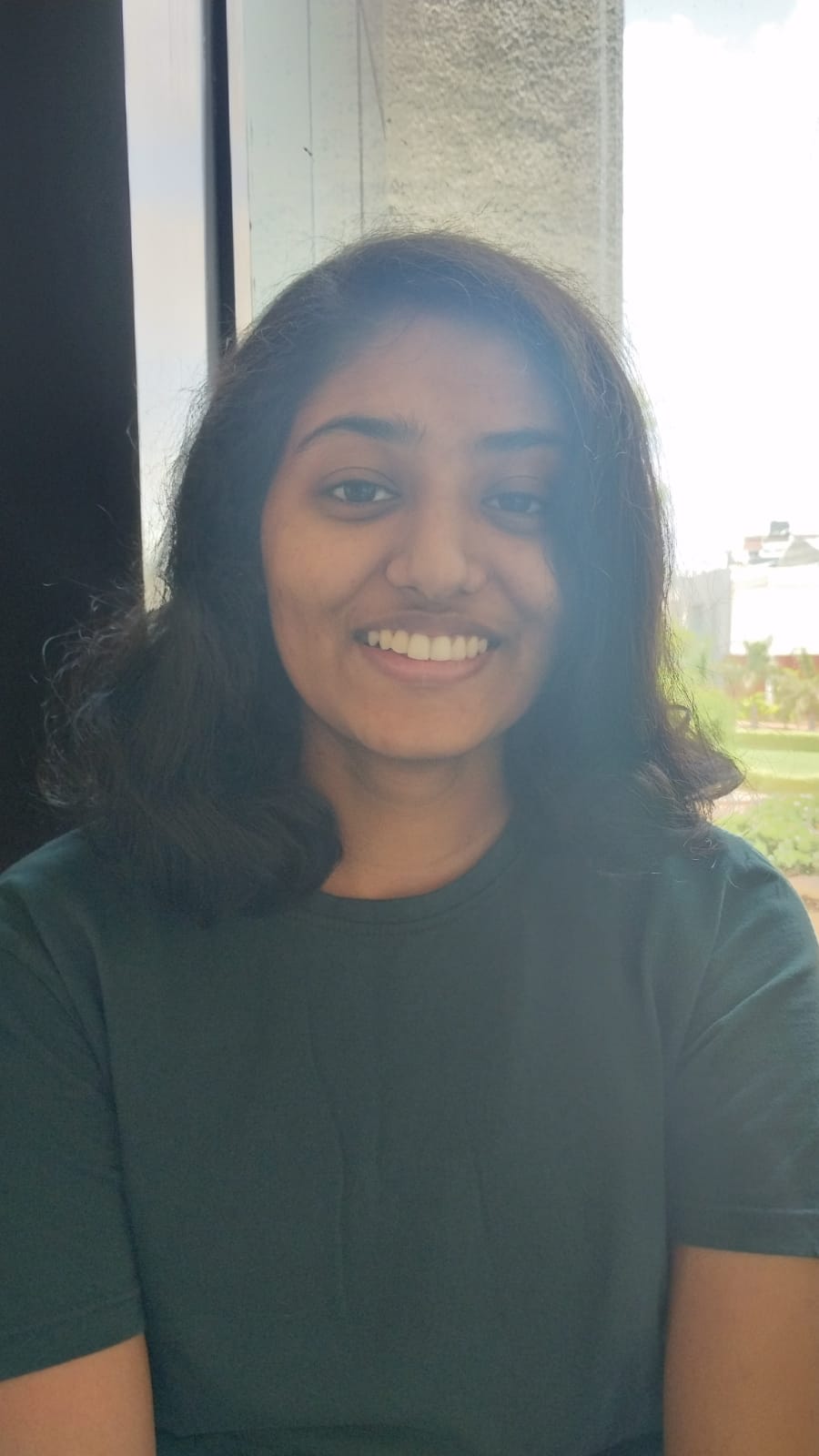
Project RTG2861-A4
Aleena Jose is pursuing her PhD research under the supervision of Prof. Stefan Kaskel at TUD with Prof. Andreas Hirsch from FAU as the co-supervisor. The aim of her project is to design new synthetic approaches for planar carbon lattices (PCLs) under mild conditions for nanostructured supercapacitors based on soft lithography. The key target is the development of chemical transformations from reactive precursors to generate 2D materials with high electrical conductivity under low temperatures. Surface-specific interactions and the role of heteroatom doping for PCLs in supercapacitors and electroadsorption devices will be studied.
Aleena obtained her BS-MS degree in Chemistry from IISER Pune, India.
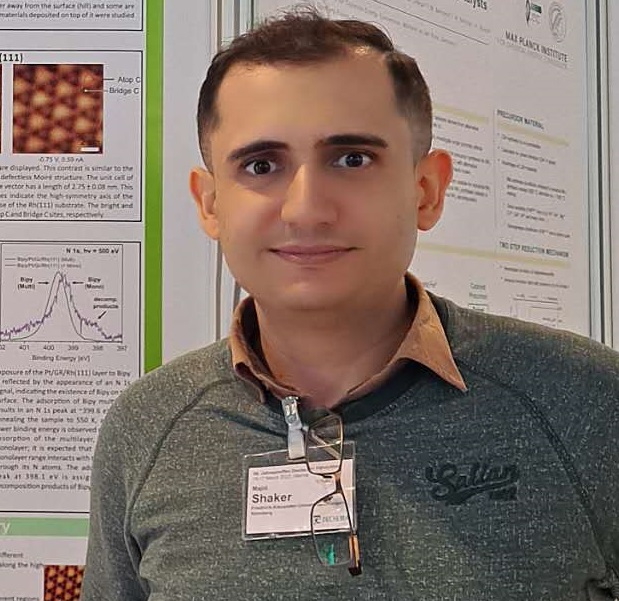
Project RTG2861-A5
Majid Shaker is pursuing his PhD studies in Chemistry under the supervision of Prof. Hans-Peter Steinrück at FAU and co-supervision of Prof. S. Kaskel (TUD). He employs scanning tunneling microscopy (STM) and X-ray photoelectron spectroscopy (XPS) to characterize the interactions of a variety of organic molecules (e. g. porphyrins and ligands) on metallic single crystals and 2D materials such as graphene and h-BN substrates, which are prepared and functionalized at ultra-high vacuum (UHV) conditions.
Majid received his BSc (2017) from KN Toosi University of Technology in the field of Materials Engineering-Industrial Metallurgy, and his MSc (2020) from Beijing University of Chemical Technology in the field of Materials Science and Engineering. Afterward, he joined Chongqing 2D Materials Institute in China and worked as an R&D engineer for applying 2D materials in various engineering applications. Finally, he joined the chair of Prof. Steinrück in October 2021.
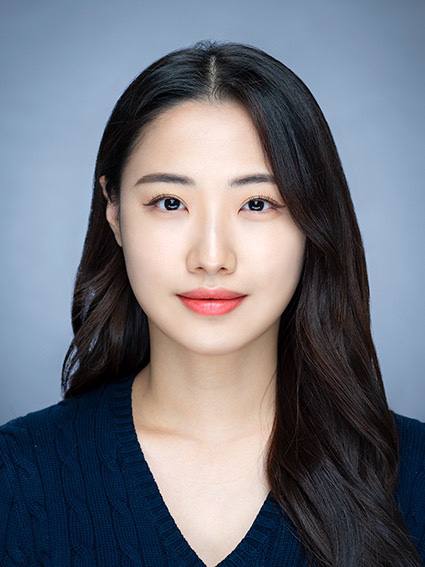
Project RTG2861-B1
Jiwon Byun is pursuing her PhD studies under the supervision of Prof. Halik at FAU and co-supervision of Prof. Kaskel at TUD. In her work, she will primarily concentrate on integrated devices featuring PCLs grown on self-assembled monolayers (SAMs). She will also explore the synergies of these devices with other 2D materials and functionalized nanoparticles. Additionally, her research will delve into the unique properties of PCLs on curved structures and investigate reactions that occur within confined spaces.
Jiwon received her BSc (2019) in Materials science and Nano technologies from the Kangwon National University (South Korea) and MSc (2022) in Advanced Materials and Processes from the Friedrich-Alexander University (FAU) (Germany).
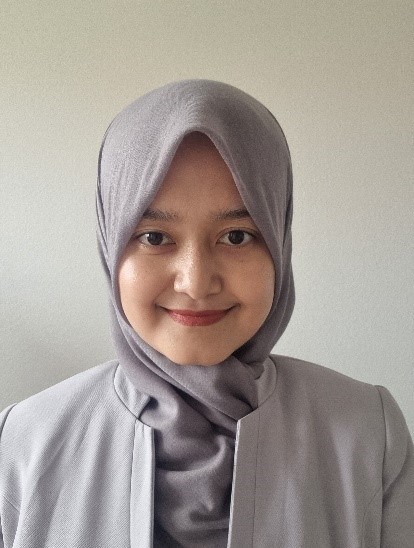
Project RTG2861-B2
Diyan Unmu Dzujah is pursuing her PhD studies under the supervision of Prof. Thomas Heine at TUD and Prof. Andreas Hirsch at FAU. She applies theoretical methods to screen new topological 2D planar carbon lattices, by exploring their structural, electronic and vibronic topology, employing a range from first-principles methods (RPA, GW, DFT) towards TB.
Diyan received her BSc (2018) from Padjadjaran University and MSc (2021) from Bandung Institute of Technology, Indonesia, in the field of Physics.
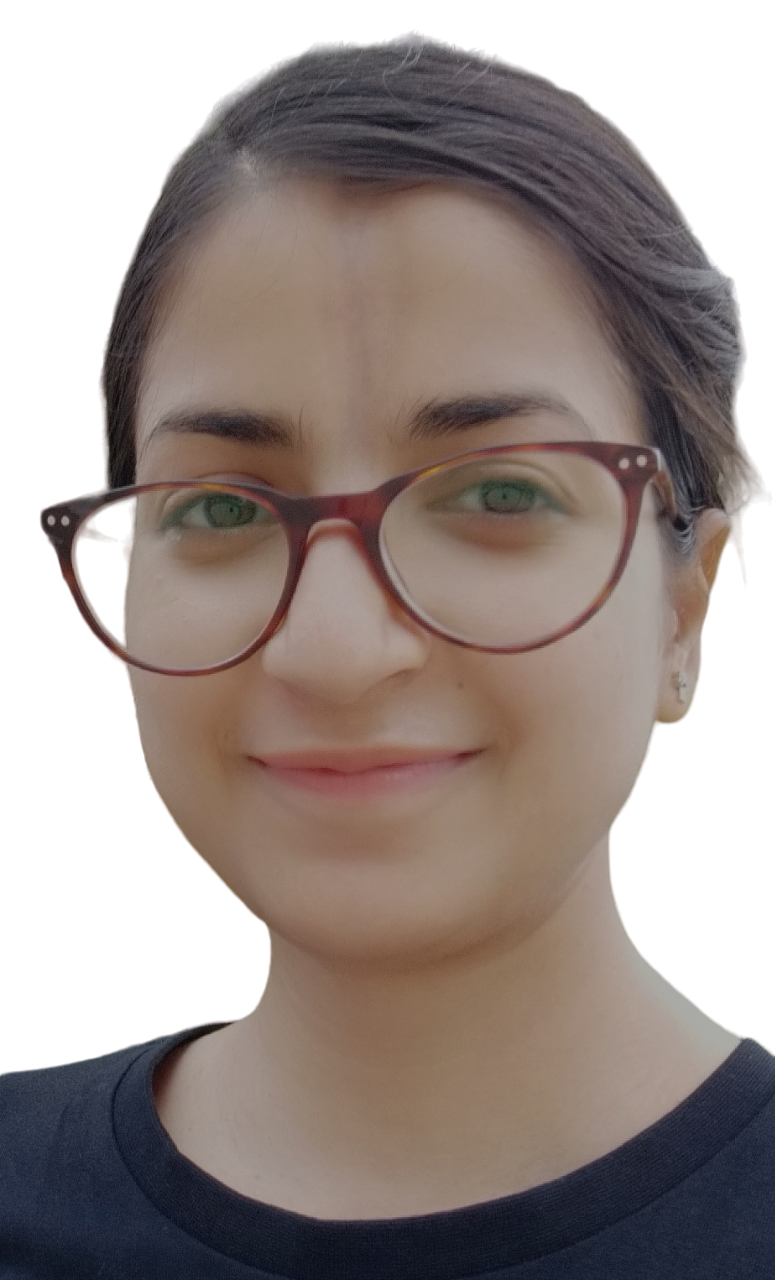
Project RTG2861-B3
Shreya Garg is pursuing her PhD at FAU Erlangen under the supervision of Prof. Sabine Maier (FAU) and co-supervision of Prof. Xinliang Feng (TUD). Her work aims at in situ bottom-up fabrication and characterization of atomically defined carbon-based nanostructures on different metal surfaces and 2-dimensional materials. Using surface probe techniques such as Scanning Tunneling Microscopy (STM), Scanning Tunneling Spectroscopy (STS), and non-contact Atomic Force Microscopy (nc-AFM), Shreya investigates the structural and electronic properties of on-surface synthesized nanostructures at ultrahigh vacuum conditions from 4K to room temperature.
Shreya Garg received her BSc (2018) in physics from Hansraj College, University of Delhi, India, and her MSc (2021) from KU Leuven, Belgium in the field of condensed matter physics.
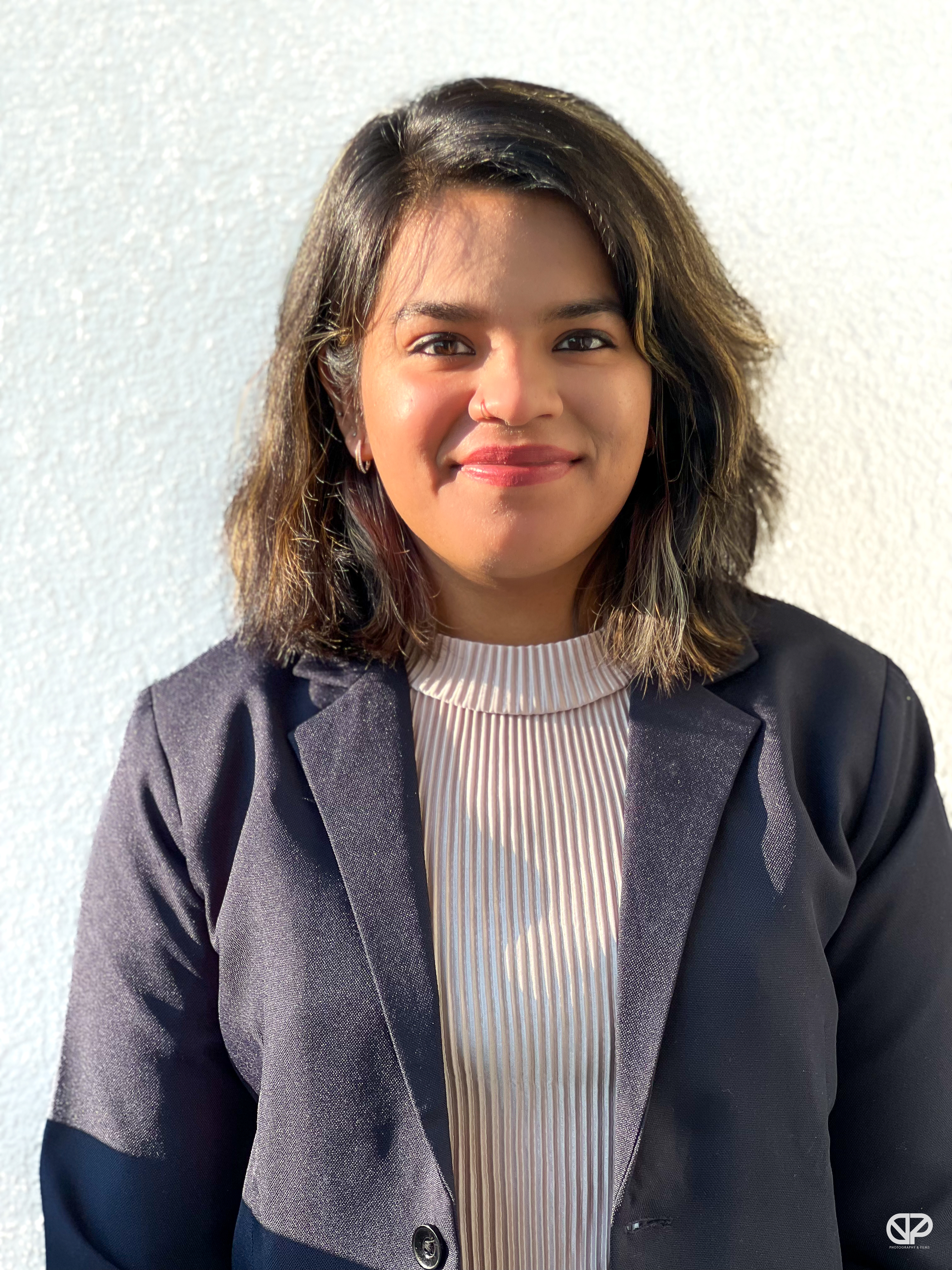
Project RTG2861-C1
Anjana Aravind is pursuing her Ph.D. research and studies under the supervision of Prof. Eike Brunner at TUD and Prof. Marcus Halik at FAU. She investigates the structural analysis and the behavior of PCLs in electrochemical devices. For this, she uses solid-state NMR and in situ spectroscopy. Processes in electro-adsorption devices like supercapacitors based on PCL architectures will be performed in collaboration with Prof. Dr. Stefan Kaskel’s group. The solid-state NMR includes the identification of functional groups introduced by chemical modifications, detection of edge sites, and stacking effects of the material.
Anjana received her BSc (2019) from Madras University and her MSc (2022), from Freie Universität, Berlin, in the field of Physics with a Master's thesis on redox state changes of a cobalt catalyst film monitored by in-situ UV-Vis’s spectroscopy in combination with electrochemical methods
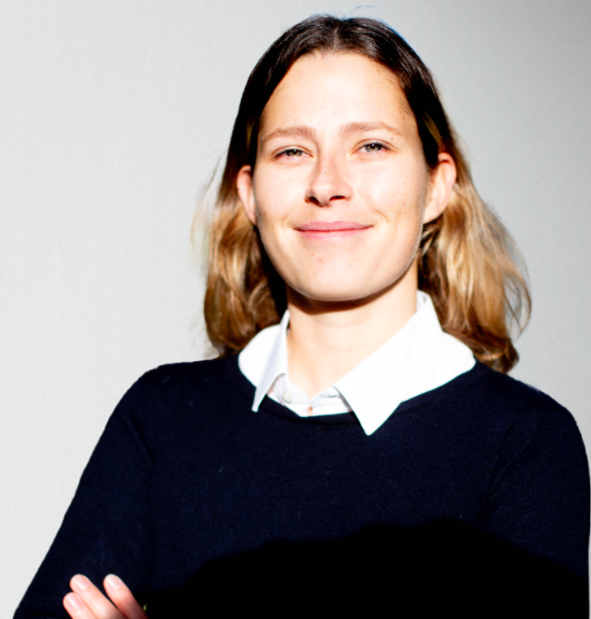
Project RTG2861-C3
Elena Mack is pursuing her PhD studies under the supervision of Prof. Dirk Guldi at FAU and co-supervision of Prof. Stefan Kaskel at TUD. The goal of her project is to demonstrate how a number of revolutionary steps in the areas of TGNRs close the gap in our understanding of charge trapping, charge transport next to excitons, charged excitons, defect-bound localized excitons, biexcitons, etc. An important objective will be to establish a correlation between the possible hybridization of excitonic states and environment by, for example, differentiating between the optical response of monolayers versus naturally or artificially stacked (multi)layers. Likewise, the nature, position, and density of local defects, the charge population will be probed among others. All of the aforementioned will, in concert, enable handling PCLs and engineering thereof with respect to fine-tuning their optoelectronic properties.
Elena received her degree in Chemistry from the University of Buenos Aires, Argentina.
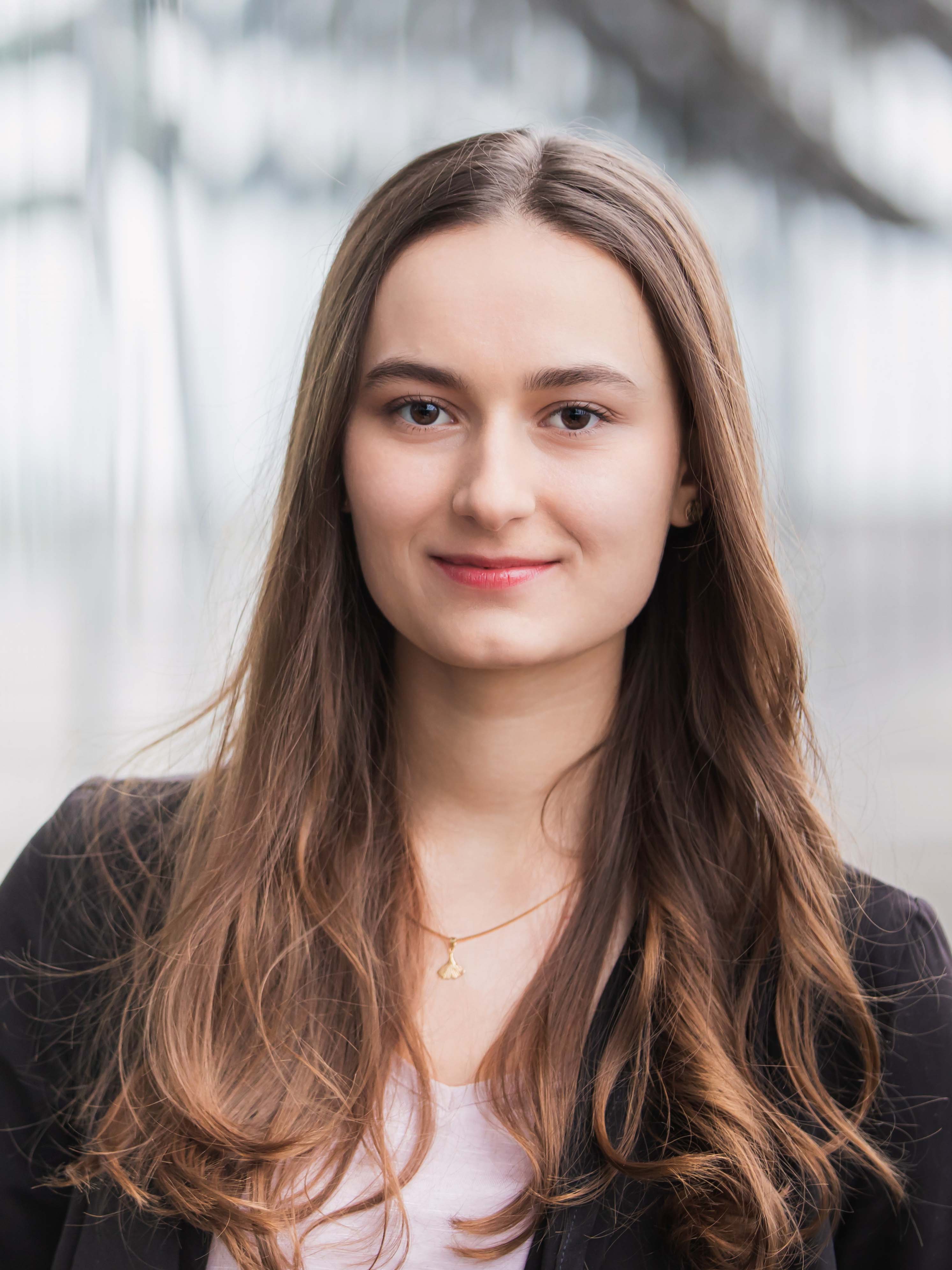
Project RTG2861-C5
Linda Feuerstein is pursuing her PhD under the supervision of Prof. Inez Weidinger at TUD and co-supervision of Prof. Janina Maultzsch at FAU, focusing on the topic of "Spectroelectrochemistry of PCL electrodes". While carbon-based electrodes play a key role in various electrochemical applications for energy conversion and storage, Linda's specific interest lies in understanding the local electric fields and non-covalent binding processes during electrocatalytic processes and their impact on the reaction mechanism at the heterogeneous interface. In her research, she combines electrochemical methods with surface-sensitive vibrational spectroscopic techniques, such as Raman and attenuated total reflection-infrared (ATR-IR) spectroscopy, that are conducted under in situ conditions.
Linda recieved her BSc (2020) and MSc (2023) at TU Dresden in the field of Chemistry.


